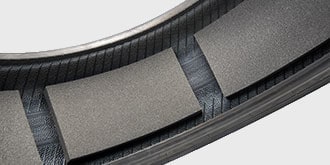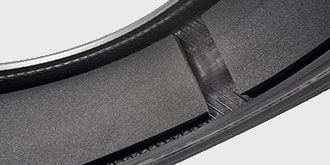With more and more nearly silent-running electric vehicles entering the market, and as the owners of luxury automobiles demand ever-increasing levels of refinement, vehicle manufacturers continually seek out new methods to reduce the interior noise level of their offerings. One of the sources of the noise experienced in a car’s cabin is the tires, and several manufacturers have addressed this by implementing sound-absorbing foam in the interior of their tires to combat cavity noise.
Each tire manufacturer has their own marketing term and noise reduction claims, but they all essentially work in the same way. After the tire has been cured in its mold, a thick layer of foam insulation is adhered to the inner liner of the tire, either as a continuous piece or comprised of several shorter sections.
Since this step occurs after manufacturing, the tires are otherwise identical to their non-noise reducing counterparts, and therefore could be mixed. For the same reason, the Department of Transportation Tire Identification Number (DOT TIN) of a noise reducing tire may be the same as the standard tire on which it is based. To help easily identify the tires without removal from the wheel, manufacturers often etch a logo into the tire sidewall.
Manufacturers with noise reducing tires and their name for the technology are as follows:

Bridgestone - B-Silent
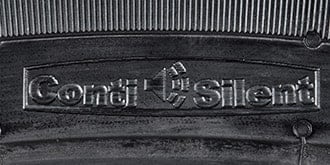
Continental - ContiSilent
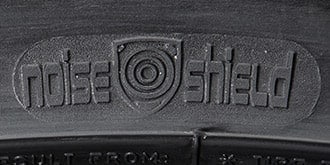
Dunlop - Noise Shield Technology
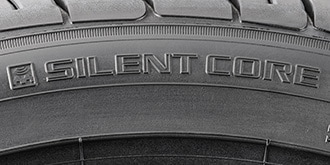
Falken - Silent Core

Goodyear - SoundComfort Technology
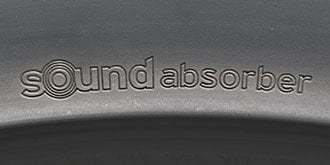
Hankook - sound absorber
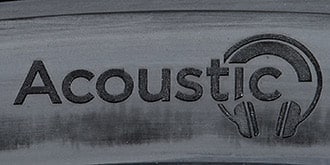
Michelin - Acoustic Technology

Pirelli - Pirelli Noise Cancelling System (PNCS)
For the most effective results, all manufacturers recommend using four noise reducing tires. If your vehicle was originally equipped with this type of tire, it is likely you will notice a degradation in sound quality in the cabin if you switch to non-noise reducing tires.
Tires featuring noise reducing technology are identified on the specs page and in search results.
As noise reducing tire technology continues to spread, we see multiple variations of style, width, color, continuity and even placement of the foam. While this disparity may seem like random execution, it is intentional, with each manufacturer determining the ideal size, style and placement of the foam for each application. Examples of some of the different styles of foam we have found are pictured below:
Was this post helpful?
2490 of 2879 people found this post helpful















